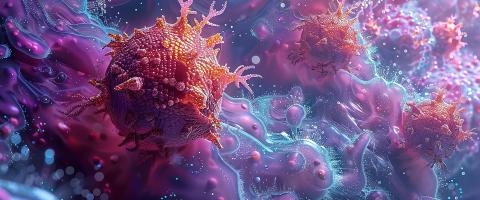
There is new evidence in the continuing effort by researchers to probe how depression, stress, and inflammation affect the risk of suicide and suicidal behavior.
Read More

Researchers have used functional brain imaging data to discover biomarkers that have the potential to predict early-onset depression in pre-adolescent youths with a family history of depression.
Read More

Inflammation in the body causes physical pain each day for untold millions of people, and in that respect it is a well-known and well-understood medical problem. Much less well understood is the role…
Read More

One of the great challenges for psychiatric research is arriving at a reliable way of diagnosing bipolar disorder, and doing so as early in the course of the illness as possible so as to boost the…
Read More

In people who experience a first psychotic episode—often the prelude to schizophrenia and related disorders—the individual’s response to antipsychotic medicines can be crucial, and typically, varies…
Read More


